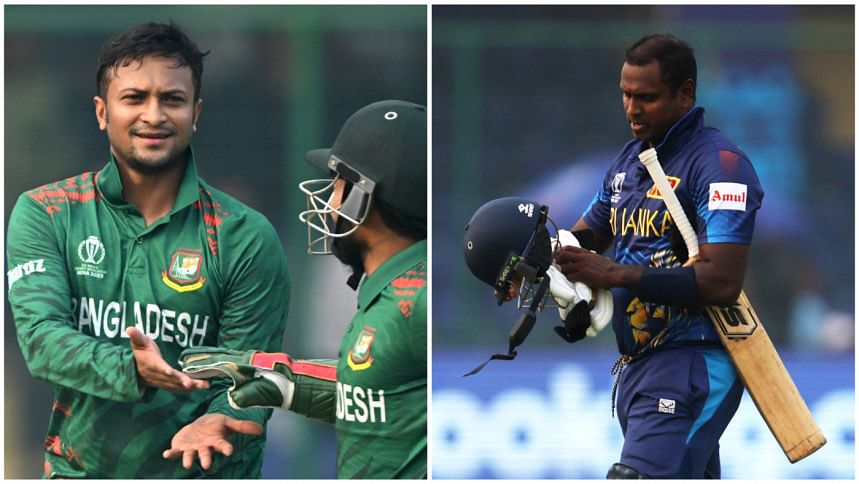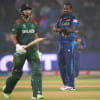Can “Spirit of Cricket” and “Laws of Cricket” coexist?

I'm not a cricket pundit, nor am I a former player. What I am is a cricket tragic and a keen student of the game. It's a fascinating game that has captured my imagination and taken up most of my time since I was introduced to it as a child.
The events of Monday night in New Delhi, with Angelo Mathews being timed out -- the first time in international Cricket -- has taken the cricket world by storm. Keyboard warriors (including myself) are divided over what transpired during the Bangladesh-Sri Lanka game.
In essence, there are two camps. One is those who think Shakib was well within his rights as he followed the laws of the game to the T. The other camp condemns Shakib as it violated this mythical concept referred to as the "Spirit of Cricket".
In a game that has been played internationally for over a century, this was the first instance that a batsman (sorry a batter) has been ruled out via this mode of dismissal. For those citing the "Spirit of Cricket", I feel that many of them do not fully comprehend this concept. It is not an abstract concept which portrays and maintains the notion of the 'gentleman's game'. I mean, am I even allowed to say it is a gentleman's game?
The term batsman is no longer the accepted terminology to describe the player wielding the bat. The world has changed, and cricket has had to change with it.
The "Spirit of Cricket" is the preamble to the laws of the game. Cricket does not have rules, it has laws. It is a sport steeped in tradition. Or so we thought until the bastardisation (according to the purists) of cricket took place with the advent of T20 cricket. Coming back to the tooth fairy known as the "Spirit of Cricket", it must be pointed out that this is not an abstract concept, it is well documented as the preamble to the laws of the game. I am copying and pasting this preamble aka the "Spirit of Cricket" below for those unaware of the documented form of this mythical tooth fairy:
"Cricket owes much of its appeal and enjoyment to the fact that it should be played not only according to the laws but also within the "Spirit of Cricket". The major responsibility for ensuring fair play rests with the captains, but extends to all players, match officials and, especially in junior cricket, teachers, coaches and parents.
- Respect is central to the Spirit of Cricket.
- Respect your captain, teammates, opponents and the authority of the umpires.
- Play hard and play fair.
- Accept the umpire's decision.
- Create a positive atmosphere by your own conduct, and encourage others to do likewise.
- Show self-discipline, even when things go against you.
- Congratulate the opposition on their successes, and enjoy those of your own team.
- Thank the officials and your opposition at the end of the match, whatever the result.
- Cricket is an exciting game that encourages leadership, friendship and teamwork, which brings together people from different nationalities, cultures and religions, especially when played within the Spirit of Cricket."
(source: https://www.lords.org/.../preamble-to-the-laws-spirit-of...)
I could literally complete a PhD (or at least publish two high-quality papers) highlighting the irrelevance of this preamble in this day and age. Without going into the details of how each and every point is violated in most games, I want to highlight point number four which reads, "Accept the umpire's decision," and how the Decision Review System (DRS) is a clear violation of this. Asking for a review is a blatant rejection of the umpire's decision. The day DRS was introduced was the day the "Spirit of Cricket" became an extinct entity.
Respect, which is central to the Spirit of Cricket, is thrown out the window every time a player abuses the opposition. For those well versed in lip reading, you probably have lost count of how many times per game Virat Kohli spits out obscene remarks.
Going back to the events that transpired on Monday night, Shakib was well within his rights to appeal, as it was within the laws of the game. What section of the preamble he violated, I do not know.
Mathews not accepting the umpire's decision was in violation of point number four of the preamble, not shaking hands with the opposition was in violation of point number seven and possibly eight. So, who didn't play the sport according to the "Spirit of Cricket"? I'm confused.
I'm not here to glorify Mathews' mode of dismissal. The point is that cricket is no longer a gentleman's game, it is a game for all. We do not even have batsmen anymore, we have batters.
There is rarely a match where there is a balance between bat and ball, with the scales heavily tilted towards the bat. The game has changed. This is not an amateur sport meant to be played only on weekends with a cup of tea at the completion of the day's play. There are high stakes and careers involved.
Should we really condemn players who play within the laws of the game?
If the preamble is on a collision course with the laws, then does it still have a place in the sport? The only time it gets used is to vilify players who make unpopular decisions that comply with the laws of the game. We only have to look back to Alex Carey running out Jonny Bairstow to see the furore surrounding the incident. Most people would agree that Bairstow had no intention of taking a run, and Carey was well within his rights to run him out as per the laws.
The "Spirit of Cricket" was conveniently used to condemn Carey for his actions. It seems that this took its toll on Carey, who has not been the same player since the incident. What was his fault? He followed the laws, and I'm not sure what section of the preamble he violated. He played hard and played fair and clearly upheld point number three of the preamble.
It is not fair to vilify players who play by the laws of the sport, when the laws and the preamble seem to be used as opposing tools depending on who benefits from using which at a given time. Might be a good time to play by the laws of the game and remove the unnecessary grey areas.
Rumman Hassan is a Lecturer of Marketing in the School of Business at the University of Southern Queensland, Australia.

 For all latest news, follow The Daily Star's Google News channel.
For all latest news, follow The Daily Star's Google News channel. 









Comments